
Business
19:10, 15-Nov-2018
Why does South Korean investment strategy matter?
Updated
18:54, 18-Nov-2018
Shen Shiwei
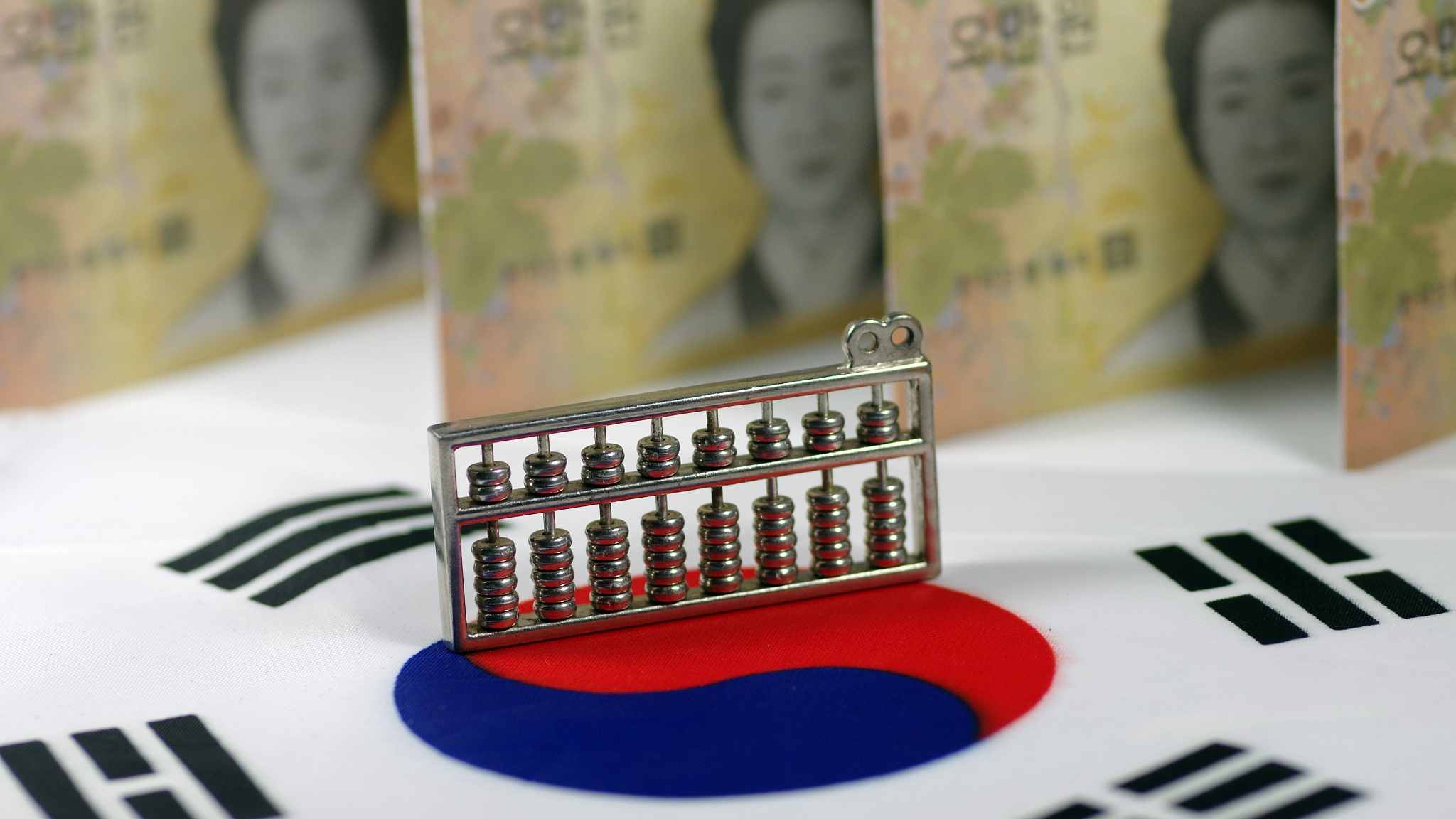
Editor's note: Shen Shiwei is a research fellow of the Charhar Institute and former government relations and business consultant for Chinese enterprises permanently in Africa. The article reflects the author's opinion, and not necessarily the views of CGTN.
As South Korea's economy grew by 3.1 percent in 2017, foreign direct investment (FDI) hit a historical 20 billion US dollars, and the warming inter-Korean relations have many observers wanting to know more about investing in the world's 12th largest economy.
Here is my onsite observation of the Invest Korea Week 2018, anchored by the South Korean Ministry of Trade, Industry and Energy (MOTIE), Korea Trade-Investment Promotion Agency (KOTRA) and Invest Korea in November.

Taesik Lee, Vice President of Korea Trade-Investment Promotion Agency, delivers opening remarks at Invest Korea Week 2018 in Seoul, South Korea, November 6, 2018. /KOTRA Photo
Taesik Lee, Vice President of Korea Trade-Investment Promotion Agency, delivers opening remarks at Invest Korea Week 2018 in Seoul, South Korea, November 6, 2018. /KOTRA Photo
Semiconductor innovation
With an export value of 97.86 billion US dollars, South Korea's semiconductor exports occupied one-fifth of its total exports in 2017, according to MOTIE.
In the world of hi-tech competition, South Korea is an important semiconductor provider in the global value chain.
Since 1992, the semiconductor has greatly contributed to South Korea's economy as its most widely exported product. Hi-tech giants like Samsung Electronics, LG Electronics and SK Hynix have not only invested huge funds and created innovative technology but also attracted foreign leading companies to be partners.
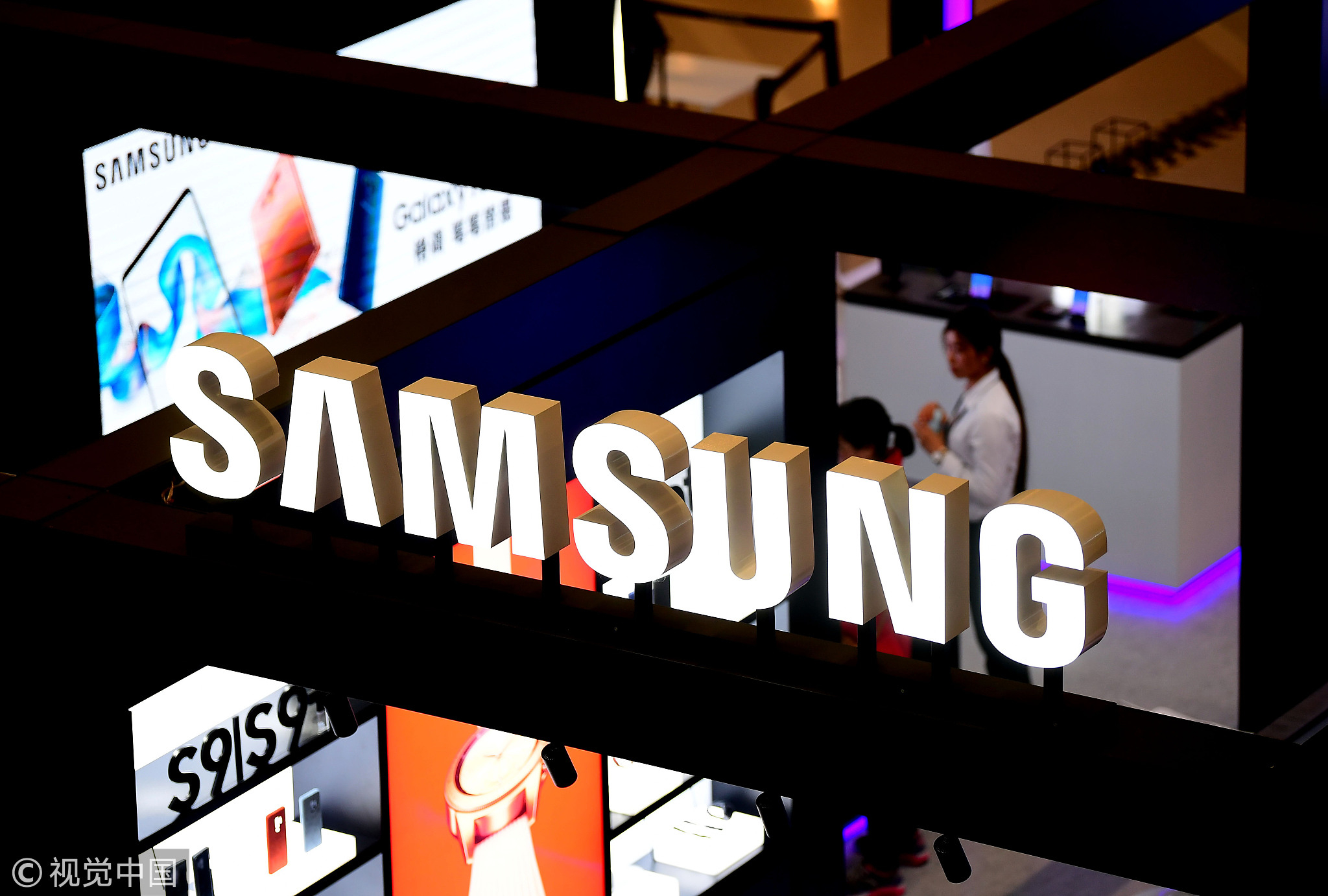
Samsung logo /VCG Photo
Samsung logo /VCG Photo
The revitalization of the IT industry has also drawn greater foreign investment to facilities, which also led to a leap forward in the digital display industry.
Back in 2010, South Korea became the first country to produce smartphones with organic light-emitting diode (OLED) displays – an advanced, lightweight instrument with better picture quality, a wider viewing angle, better power efficiency and thickness.
South Korea's cutting-edge OLED industry has attracted rising demand from smartphone and TV manufacturing enterprises worldwide, especially those from China. Purchase orders from Chinese tech giants like Huawei, Xiaomi, OPPO, Vivo and Hisense have increased sharply in recent months.
South Korea's OLED export to China hit 123 million US dollars from January to September this year, a 43.2 percent increase year on year, according to the Korea Customs Service.
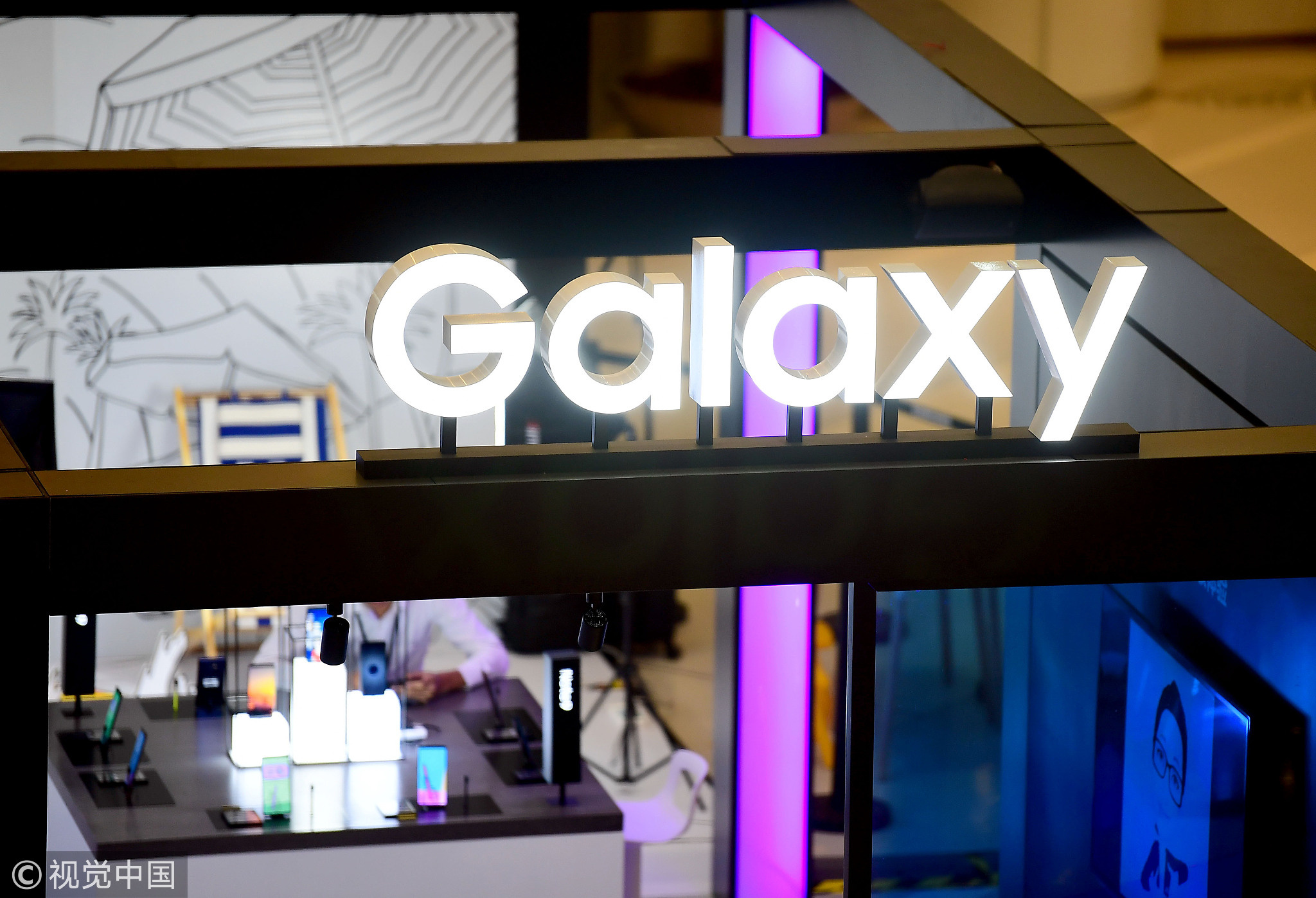
A logo of Samsung smartphone. /VCG Photo
A logo of Samsung smartphone. /VCG Photo
Regarding other tech innovation, South Korea's commercialized 5G communication network could be a good partner for other Internet giants to accelerate research and technical breakthroughs, including China.
At the recent fifth World Internet Conference themed "5G Era: Opening and Cooperation for a Better Future" in Wuzhen, China's Zhejiang Province, China demonstrated its vision to accelerate commercialized 5G communication technology soon. Therefore, China and South Korea have more areas to boost technology investment.
Petrochemical powerhouse vows transformation
Ulsan Metropolitan City has been South Korea's automobile manufacturing, shipbuilding and petrochemical powerhouse since the 1960s. It only takes two hours to reach Ulsan from Seoul by highspeed railway.
Why does Ulsan matter?
It is all about heavy chemicals, South Korea's leading export to the world. Heavy chemicals including petrochemicals accounted for 55.4 percent of South Korea's exports in 2017, contributing a revenue of 318.11 billion US dollars, according to MOTIE.
During a site visit, we noticed that South Korea's major automobile and shipbuilding giants like Hyundai Motor Company and Hyundai Heavy Industries, as well as oil refinery SK Energy, are concentrated here.
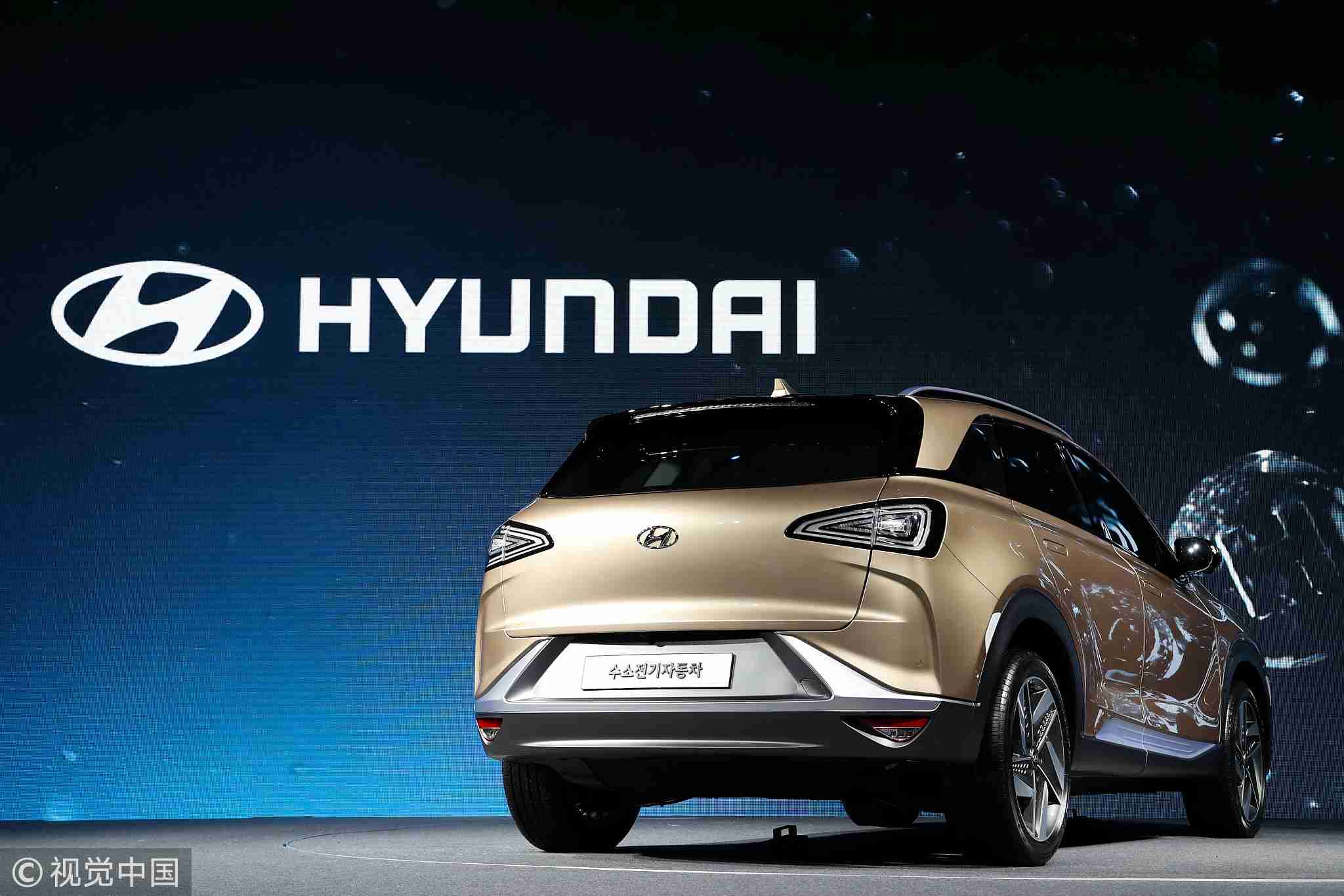
Hyundai Motor logo /VCG Photo
Hyundai Motor logo /VCG Photo
This economic hub is currently striving to transform its automobile manufacturing to focus on energy efficient, intelligent cars, despite oil refineries being a major attraction for FDI, local officials said.
Another reason is traditional manufacturing industries such as shipbuilding and automobiles are facing more severe competition.
Eco-friendly technology matters
A better life is everyone's dream. Ulsan created a good example of transforming a heavily polluted, petrochemical-driven metropolis into an eco-friendly economic hub via tackling pollution and rebuilding the ecosystem.
In 2017, Ulsan had a GDP per capita of 65,093 US dollars, the highest of any region in South Korea. Today, it is South Korea's largest industrial logistics port and the 3rd largest liquid cargo handling port in the world.
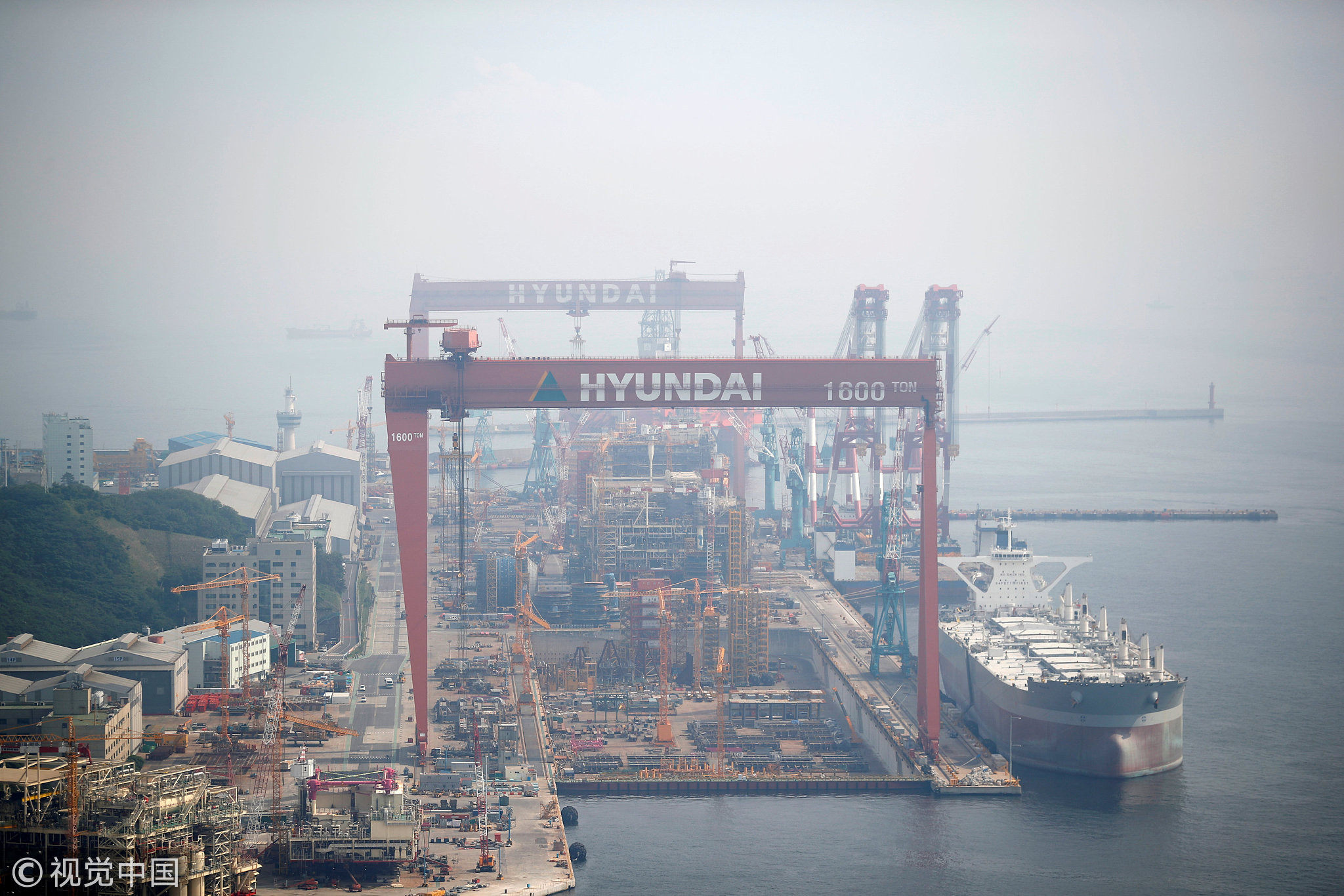
Giant cranes of Hyundai Heavy Industries in Ulsan, South Korea, May 29, 2018. /VCG Photo
Giant cranes of Hyundai Heavy Industries in Ulsan, South Korea, May 29, 2018. /VCG Photo
Walking along the Taehwagang River Grand Park, one of Ulsan's 12 scenic beauties, you could hardly image this river was highly polluted and called the "river of death" in the 1990s.
Local officials said that the Ulsan government and enterprises have invested huge funds and technology to rehabilitate the wetland as well as improve the ecological environment and living conditions since 2004. Today, the river and bamboo grove around it have shown the importance of nature and the environment. "Natural, Clean and Comfortable" is the main theme.
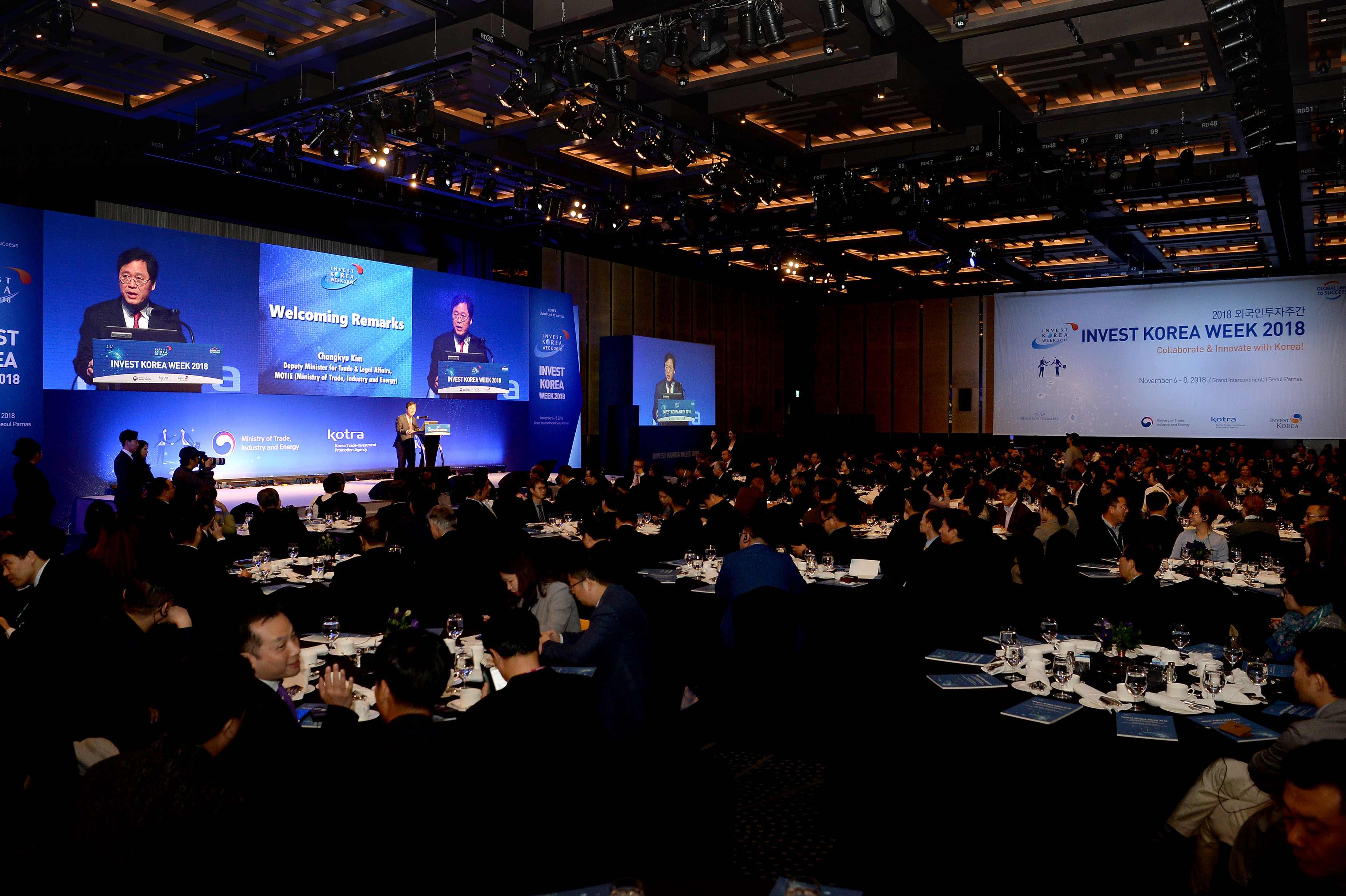
Changkyu Kim, Deputy Minister for Trade & Legal Affairs, MOTIE delivers welcoming remarks at Invest Korea Week 2018 in Seoul, South Korea, November 6, 2018. /Photo by Shen Shiwei
Changkyu Kim, Deputy Minister for Trade & Legal Affairs, MOTIE delivers welcoming remarks at Invest Korea Week 2018 in Seoul, South Korea, November 6, 2018. /Photo by Shen Shiwei
Problem-solving creates business opportunities. Since pollution is a serious issue in China where vast and dynamic industrialization is on the fast track, introducing South Korea's technology, experience and method of tackling these issues could benefit China.
(If you want to contribute and have a specific expertise, please contact us at opinions@cgtn.com)

SITEMAP
Copyright © 2018 CGTN. Beijing ICP prepared NO.16065310-3
Copyright © 2018 CGTN. Beijing ICP prepared NO.16065310-3